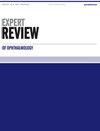Crowdsourcing and its applications to ophthalmology
IF 0.9
Q4 OPHTHALMOLOGY
引用次数: 0
Abstract
ABSTRACT Introduction The aim of this study was to review the literature on the application of crowdsourcing in the field of ophthalmology. As the concept of crowdsourcing continues to receive interest, this review describes an analysis of the benefits, limitations, and future directions of crowdsourcing in the context of specific cases. A search of major research databases was performed to identify articles with specific reference to crowdsourcing within the field of ophthalmology. Seventeen total studies used crowdsourcing in a branch of ophthalmology. Crowdsourcing was used in three capacities: evaluation of ophthalmic imaging, collection of data, and assessment of surgery or surgical outcomes. Crowdsourcing holds the potential for rapid, economic data processing and reducing the task burden on experts. The main limitation of crowdsourcing is the potential for error due to inexperience of lay assessors. Areas covered Crowdsourcing was applied in three capacities: evaluation of ophthalmic imaging, collection of data, and assessment of surgery or surgical outcomes. Expert opinion Crowdsourcing has been utilized within ophthalmology and holds potential for rapid, economical data processing and reducing task burden on experts. While the use of crowdsourcing may still be nascent, prior reports indicate promise. This report aims to show how crowdsourcing has been applied in ophthalmology. The main limitation of crowdsourcing has been the potential for error due to lay assessor inexperience, though a potential solution is to use trained assessors. We hope to highlight the past, present, and future of crowdsourcing within ophthalmology through this comprehensive review.众包及其在眼科中的应用
摘要:本研究的目的是回顾众包在眼科领域应用的文献。随着众包概念不断受到关注,本文将结合具体案例分析众包的好处、局限性和未来发展方向。我们对主要的研究数据库进行了检索,以确定眼科领域中具体涉及众包的文章。共有17项研究在眼科的一个分支中使用了众包。众包被用于三个方面:眼科成像评估、数据收集和手术或手术结果评估。众包具有快速、经济的数据处理和减轻专家任务负担的潜力。众包的主要限制是由于非专业评估人员缺乏经验而产生错误的可能性。众包在三个方面得到了应用:眼科成像评估、数据收集和手术或手术结果评估。专家意见众包已被应用于眼科,具有快速、经济的数据处理和减轻专家任务负担的潜力。虽然众包的使用可能仍处于萌芽阶段,但之前的报告显示了前景。本报告旨在展示众包在眼科中的应用。众包的主要限制是由于外行评估人员缺乏经验而可能出现错误,尽管一个潜在的解决方案是使用训练有素的评估人员。我们希望通过这篇全面的综述来强调眼科众包的过去、现在和未来。
本文章由计算机程序翻译,如有差异,请以英文原文为准。
求助全文
约1分钟内获得全文
求助全文
来源期刊

Expert Review of Ophthalmology
Health Professions-Optometry
CiteScore
1.40
自引率
0.00%
发文量
39
期刊介绍:
The worldwide problem of visual impairment is set to increase, as we are seeing increased longevity in developed countries. This will produce a crisis in vision care unless concerted action is taken. The substantial value that ophthalmic interventions confer to patients with eye diseases has led to intense research efforts in this area in recent years, with corresponding improvements in treatment, ophthalmic instrumentation and surgical techniques. As a result, the future for ophthalmology holds great promise as further exciting and innovative developments unfold.
 求助内容:
求助内容: 应助结果提醒方式:
应助结果提醒方式:


